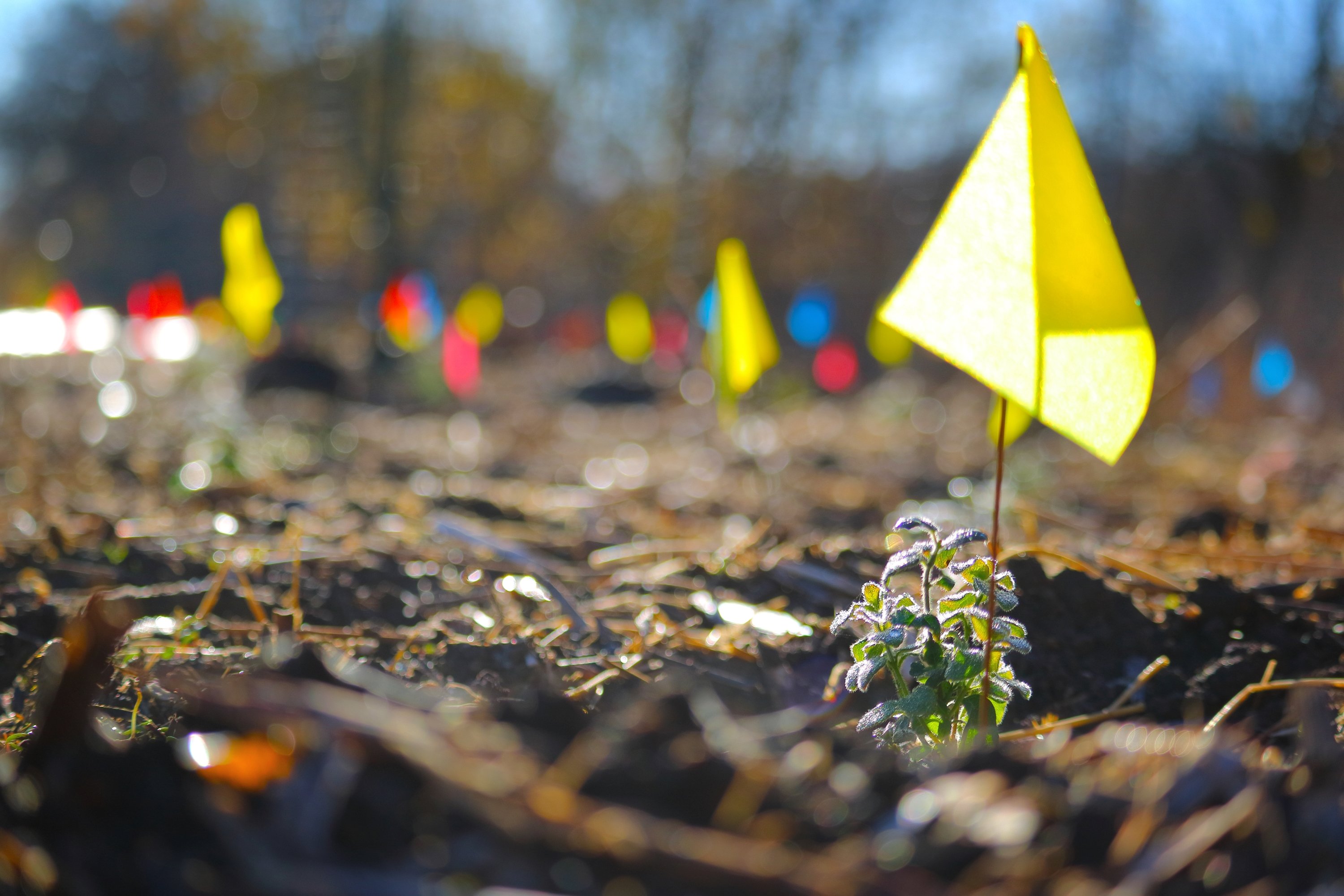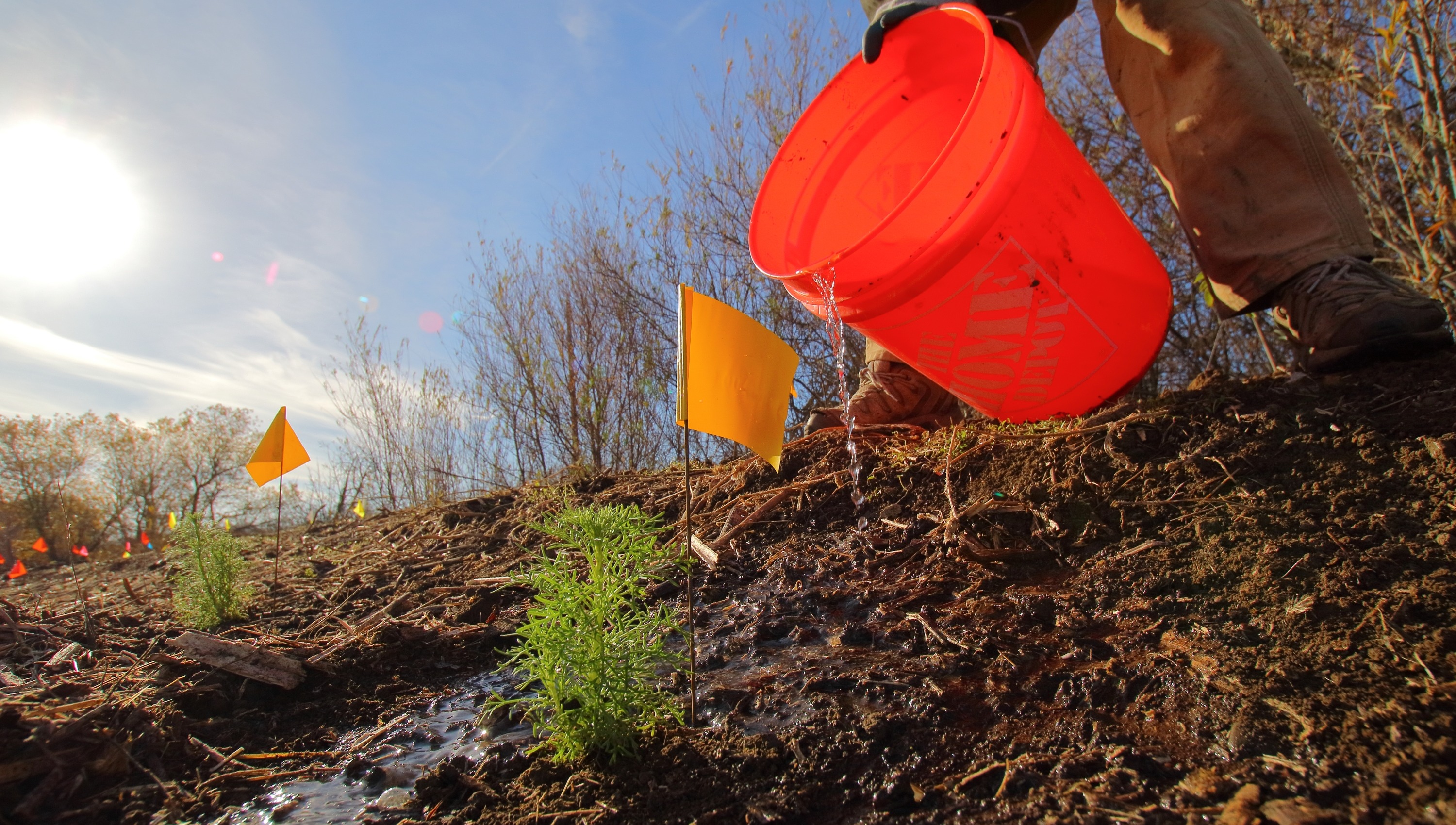There are new projects taking root along Fisher Creek in Coyote Valley!
Over the summer, we shared an update about the initial cleanup work that Authority staff and conservation partners were doing to restore Fisher’s Bend, a protected creekside property with crucial riparian habitat and wildlife linkages in the Coyote Valley. In the first week, workers cleared vast thickets of invasive poison hemlock known to crowd out native plants, and hauled out trash by the truckload, including more than 90 tires that had been dumped in the creekbed.
This past fall, field staff from the Open Space Authority and Point Blue Conservation Science have been able to start adding native plants across the property. Over the next year, the team plans to add a diverse mix of 1,300 plants to enhance habitat, provide food for native wildlife, and cover for animals who move through the environment.
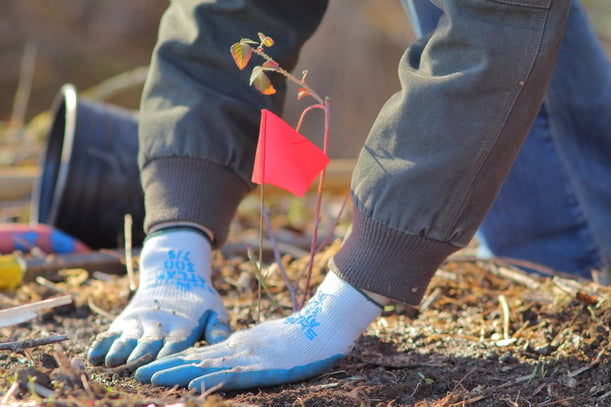
“I’m very happy with the care and thought that went into plant selection to expand the vegetation mix and create a climate resilient palate,” said Galli Basson, Resource Management Specialist at the Open Space Authority. “We chose plants that are native to the area but also do well in a variety of climatic conditions. There will always be something blooming, which is good for pollinators.”
The plants include smaller species like deerweed and buckwheat that are food for butterflies and other pollinators, and larger shrubby plants like elderberry and coffeeberry that provide safe cover for wildlife passing through.
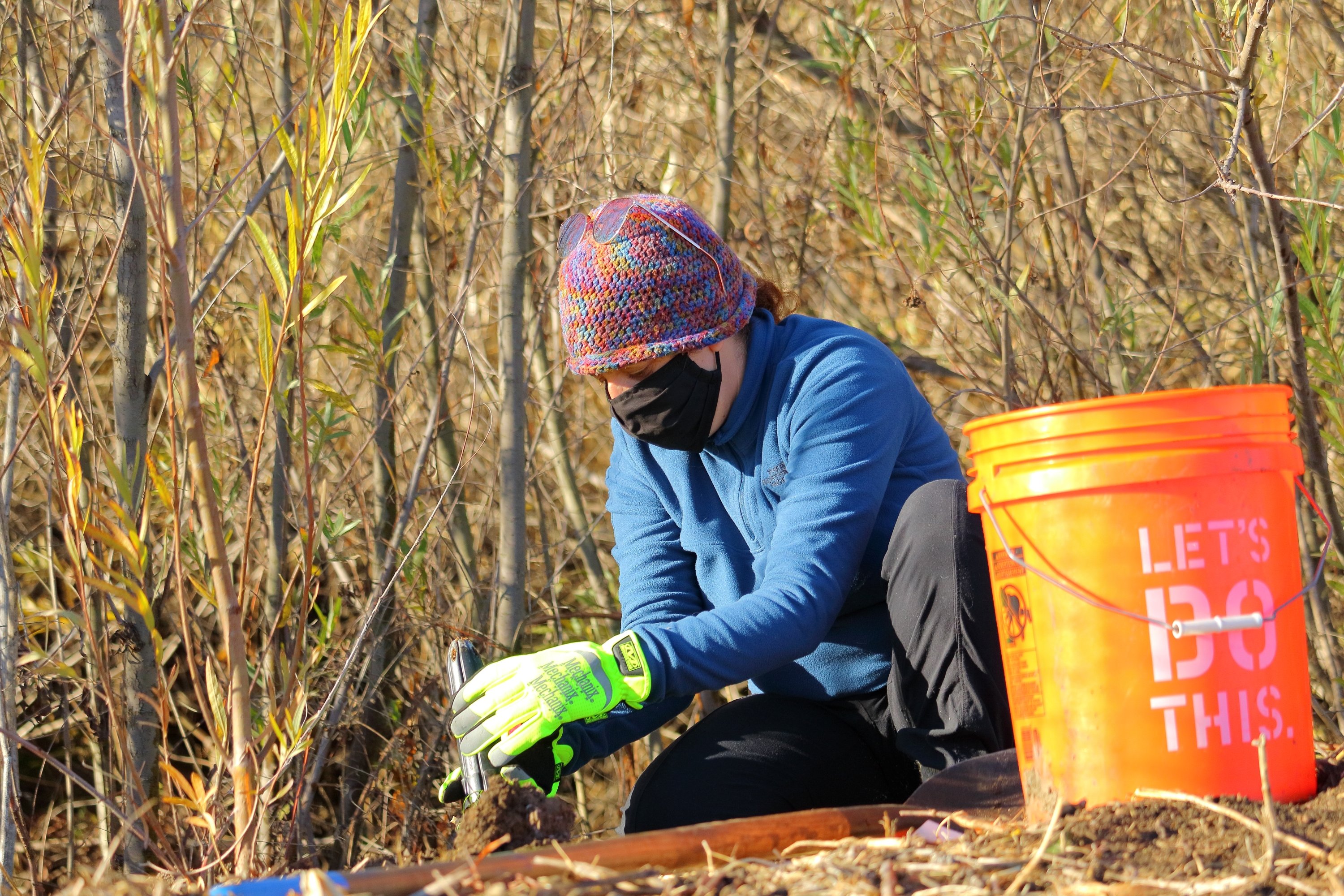
The landscape is already showing signs of new life. Staff and farmers working on the property have witnessed increased bird activity including Song Sparrows, Ruby Crowned Kinglets, and Say's Phoebes.
Unfortunately, the mass cleanup this past summer only scratched the surface of the impact of years of neglect. In almost every hole they dig to place plant starters, staff are finding glass and plastic bottles, broken plates, and pieces of clothing. “It was a surprise, but we are really happy to get rid of more of that,” said Basson.
The first phase of planting is expected to wrap up in January, and the second phase will launch next fall, though two other related habitat improvement projects are on the horizon.
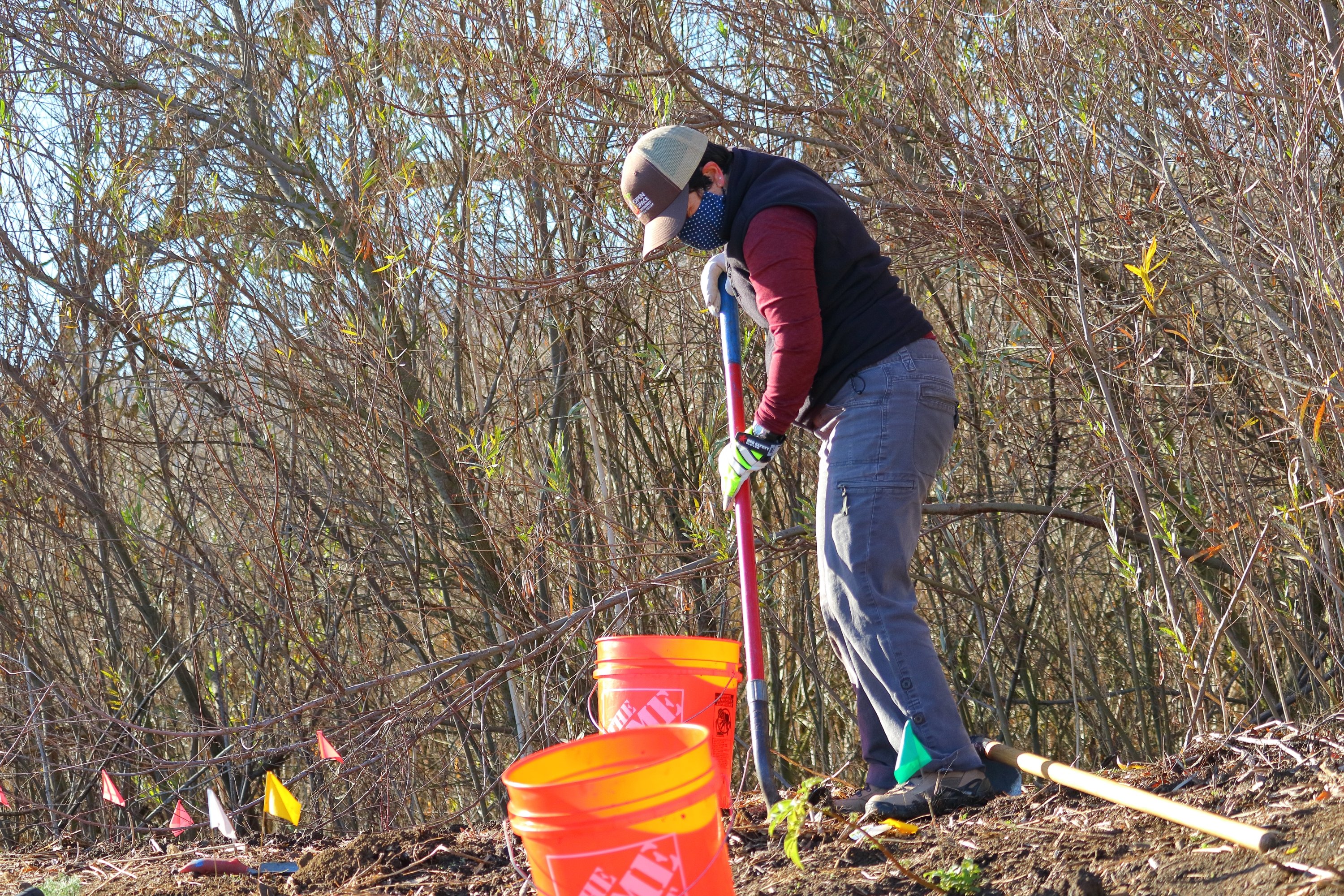
Open Space Authority volunteer Dave Poeschel has collected milkweed seeds from Coyote Valley Open Space Preserve and the Authority plans to plant those seeds this winter, hopefully yielding more of this native plant that is essential to the survival of threatened Monarch Butterflies.
Additionally, an Eagle Scout troop in San Jose has volunteered to build bee boxes that can be placed around the property to provide habitat for native bees.
While the restoration team originally hoped that they could engage a large group of local schoolchildren, as well as volunteers with Peninsula Open Space Trust and the Open Space Authority, COVID-19 led us to cancel these events for the project this year.
“I love being out there putting plants in the ground, and while I wish I could be out there with others, we look forward to finishing this work next fall and sharing it safely with others then,” said Basson.
Photos: David Mauk, Open Space Authority Natural Resource Technician
